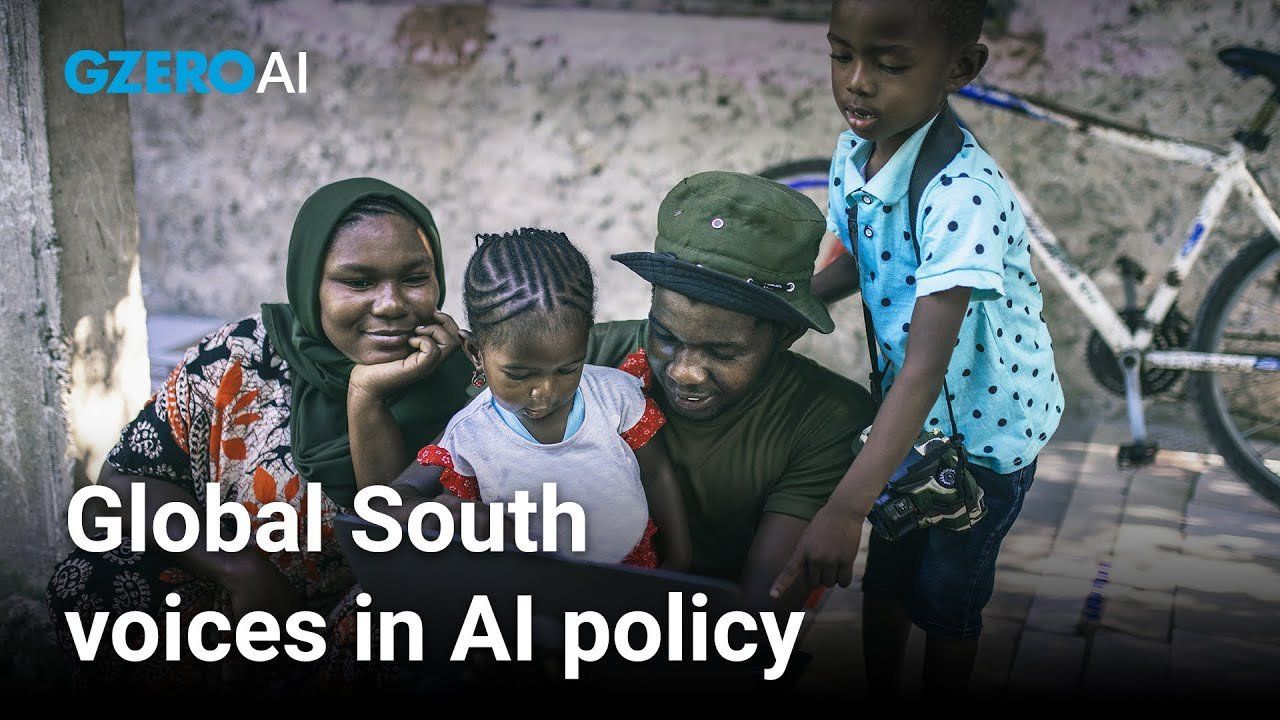Marietje Schaake, International Policy Fellow, Stanford Human-Centered Artificial Intelligence, and former European Parliamentarian, co-hosts GZERO AI, our new weekly video series intended to help you keep up and make sense of the latest news on the AI revolution. In this episode, she explains the need to incorporate diverse and inclusive perspectives in formulating policies and regulations for artificial intelligence. Narrowing the focus primarily to the three major policy blocs—China, the US, and Europe—would overlook crucial opportunities to address risks and concerns unique to the global South.
This is GZERO AI from Stanford's campus, where we just hosted a two-day conference on AI policy around the world. And when I say around the world, I mean truly around the world, including many voices from the Global South, from multilateral organizations like the OECD and the UN, and from the big leading AI policy blocs like the EU, the UK, the US and Japan that all have AI offices for oversight.
But what I really want to focus on is the role of people in the Global South, and how they're underrepresented in discussions about both what AI means in their local context and how they participate in debates around policy, if they do at all. Because right now, our focus is way too much on the three big policy blocks, China, the US and Europe.
Also because of course, a lot of industry is here around the corner in Silicon Valley. But I've learned so much from listening to people who focus on the African continent, where there are no less than 2000 languages. And, many questions about what AI will mean for those languages, for access for people beyond just the exploitative and attractive model, based on which large language models are trained with cheap labor from people in these developing countries, but also about how harms can be so different.
For example, the disinformation tends to spread with WhatsApp rather than social media platforms and that voice, through generative AI. So synthetic voice is one of the most effective ways to spread disinformation. Something that's not as prominently recognized here, where there's so much focus on text content and deepfakes videos, but not so much on audio. And then, of course, we talked about elections because there are a record number of people voting this year and disinformation around elections, tends to pick up.
And AI is really a wild card in that. So I take away that we just need to have many more conversations, not so much, about AI in the Global South and tech policy there, but listening to people who are living in those communities, researching the impact of AI in the Global South, or who are pushing for fair treatment when their governments are using the latest technologies for repression, for example.
So lots of fruitful thought. And, I was very grateful that people made it all the way over here to share their perspectives with us.
More For You
People in support of former South Korean President Yoon Suk Yeol rally near Seoul Central District Court in Seoul on Feb. 19, 2026. The court sentenced him to life imprisonment the same day for leading an insurrection with his short-lived declaration of martial law in December 2024.
65: The age of former South Korean President Yoon Suk Yeol, who was sentenced to life in prison on Thursday after being found guilty of plotting an insurrection when he declared martial law in 2024.
Most Popular
In an era when geopolitics can feel overwhelming and remote, sometimes the best messengers are made of felt and foam.
The Hungarian election is off to the races, and nationalist Prime Minister Viktor Orbán is facing his most serious challenger in 16 years.
Does skepticism rule the day in politics? Public opinion data collected as part of the Munich Security Conference’s annual report found that large shares of respondents in G7 and several BRICS countries believed their governments’ policies would leave future generations worse off.
